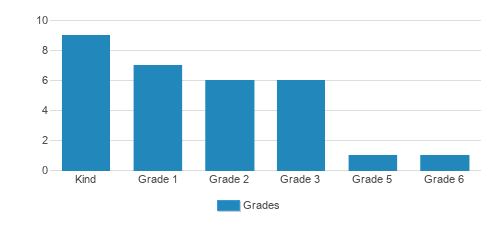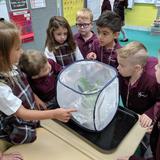Playful Minds serves 30 students in grades Kindergarten-6. The student:teacher of Playful Minds is 10:1 and the school's religious affiliation is Nonsectarian.
Quick Facts (2026)
- School Type: School with Special Program Emphasis
- Grades: Kindergarten-6
- Enrollment: 30 students
- Application Deadline: None / Rolling
- Source: National Center for Education Statistics (NCES)
Top Rankings
Playful Minds ranks among the top 20% of private schools in Massachusetts for:
Category
Attribute
School Overview
School Type
Religious Affiliation
Grades Offered
Grades Kindergarten-6
Student Body
Total Students
30 students
Student Body Type
Co-ed
% Students of Color
97%
State avg.: 31%
Students by Grade

Academics and Faculty
Total Classroom Teachers
3 teachers
Student-Teacher Ratio
10:1
National avg.: 13:1
Tuition and Acceptance Rate
Admission Deadline
None / Rolling
Application URL
School Notes
- School Motto: Learn, Play, Grow, Discover.
Source: National Center for Education Statistics (NCES)
Frequently Asked Questions
When is the application deadline for Playful Minds?
The application deadline for Playful Minds is rolling (applications are reviewed as they are received year-round).
In what neighborhood is Playful Minds located?
Playful Minds is located in the Memorial Square neighborhood of Springfield, MA.
School Reviews
Endorse Playful Minds. Endorsements should be a few sentences in length. Please include any comments on:
- Quality of academic programs, teachers, and facilities
- Availability of music, art, sports and other extracurricular activities
- Academic or athletic awards
Recent Articles

Financial Aid 101 for Private School Families 2026
Guide to private school financial aid in 2026, with current costs, key planning timelines and practical steps parents need to maximize aid options.

Why Extracurricular Activities Matter in 2026
Discover why extracurricular activities remain essential in 2026, with updated research, costs, and admissions insights for parents and students.

How to Appeal for Financial Aid After Admission
Learn how to appeal for financial aid after admission to a private school, with expert steps, timelines, and 2026 updates for families.










